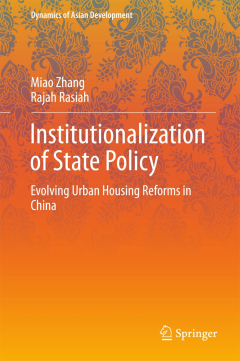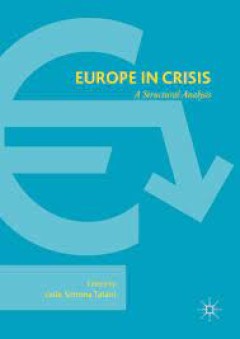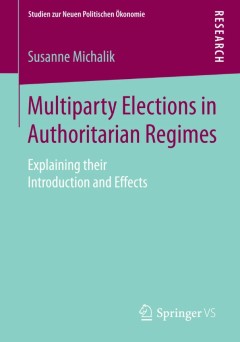Filter by

Experimental Economics Volume II: Economic Applications
How do applications affect behavior? Experimental Economics Volume II seeks to answer these questions by examining the auction mechanism, imperfect competition and incentives to understand financial crises, political preferences and elections, and more.
- Edition
- -
- ISBN/ISSN
- 978-1-137-53816-1
- Collation
- XVIII, 220
- Series Title
- -
- Call Number
- -

Knowledge Capture in Financial Regulation: Data-, Information- and Knowledge-…
Eva Becker assesses the US financial crisis as a crisis of regulatory data, information and knowledge. Based on the Financial Crisis Inquiry Commission’s interviews as well her own interviews, and drawing on Capture Theory and recent reformulations thereof, she develops “knowledge capture” as a theoretic framework to assess financial regulation under conditions of 21st century complexity.
- Edition
- -
- ISBN/ISSN
- 978-3-658-13666-6
- Collation
- -
- Series Title
- -
- Call Number
- -

Institutionalization of State Policy
Using fresh evidence and a novel methodological framework, this book sheds light on how institutions have driven economic reform in China's urban housing sector. The book systematically analyzes the developmental role of the state in China, with rich empirical evidence to show how decentralization has brought about significant participation by the different levels of government with the central…
- Edition
- -
- ISBN/ISSN
- 978-981-287-569-3
- Collation
- XIII, 133
- Series Title
- -
- Call Number
- 330 ZHA i

Europe in Crisis A Structural Analysis
With contributions from a range of expert scholars in European economics, politics and social policy, this edited collection analyses the crisis in Europe by exploring the structural asymmetries of the Economic and Monetary Union (EMU) and European monetary integration. Structured in two parts, the chapters in this book discuss the impact of the global financial crisis on the Euro area; the fai…
- Edition
- -
- ISBN/ISSN
- 978-1-137-57707-8
- Collation
- 2 b/w illustrations, 8 illustrations in colour
- Series Title
- -
- Call Number
- -

Multiparty Elections in Authoritarian Regimes
Susanne Michalik analyzes why authoritarian regimes allow for multiparty elections and how they affect political outcomes. Even though their introduction rarely leads to a change in power, such elections should not be regarded as mere window-dressing. She argues that competitive elections are installed to deal with a split among the incumbent elite and to facilitate the formation of a new rulin…
- Edition
- 1
- ISBN/ISSN
- 978-3-658-09510-9
- Collation
- XII, 148
- Series Title
- Studien zur Neuen Politischen Ökonomie
- Call Number
- -

Emerging Economies During and After the Great Recession
The International Papers in Political Economy (IPPE) series explores the latest developments in political economy. This twelfth volume presents a collection of eight papers, analysing the emergence and economic problems of the emerging economies during and after the international financial crisis of 2007–8 and the subsequent Great Recession. The contributions range from an analysis of the …
- Edition
- 1
- ISBN/ISSN
- 978-1-137-48555-7
- Collation
- XIV, 318
- Series Title
- -
- Call Number
- -
 Computer Science, Information & General Works
Computer Science, Information & General Works  Philosophy & Psychology
Philosophy & Psychology  Religion
Religion  Social Sciences
Social Sciences  Language
Language  Pure Science
Pure Science  Applied Sciences
Applied Sciences  Art & Recreation
Art & Recreation  Literature
Literature  History & Geography
History & Geography